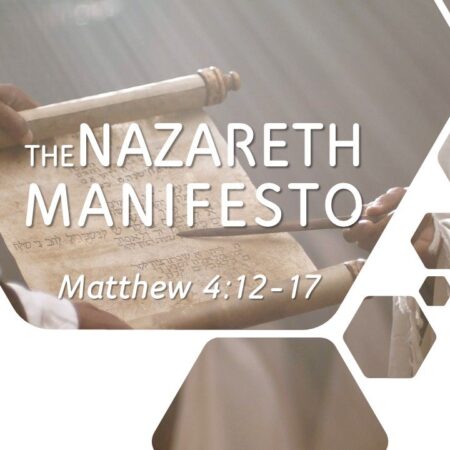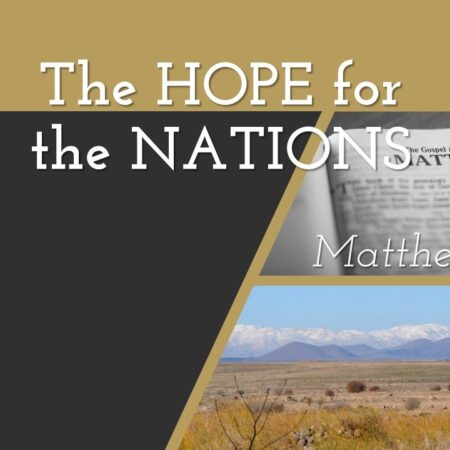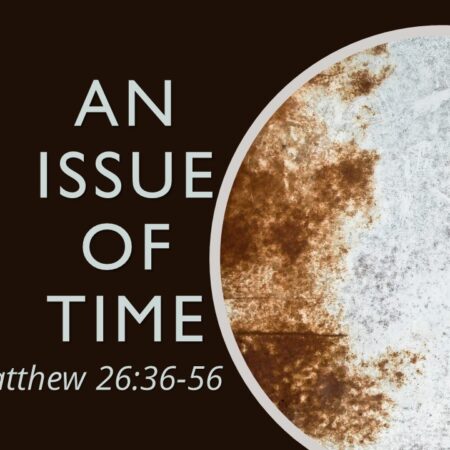Christopher Wright in his book “The Mission of God”, writes:
“The reign of YHWH, when it would finally come, would mean justice for the oppressed and the overthrow of the wicked. It would bring true peace to the nations and the abolition of war, the means of war, and training for war. It would put an end to poverty, want and need, and provide everyone with economic viability (under the metaphor “under his own vine and fig tree”). It would mean satisfying and fulfilling life for human families, safety for children, and fulfillment for the elderly, without danger from enemies, and all of this within a renewed creation free from harm and threat. It would mean the inversion of the moral values that dominate the current world order, for in the kingdom of God the upside down priorities of the beatitudes operate and the Magnificat is not just wishful thinking.”
J.D. Green in his book “Christology in Cultural Perspective”
“As Jesus stood on trial before the highest political-religious authority in all Jewish society, he calmly took to himself the identity of the “Daniel’s Son of Man”, whose authority would ultimately overthrow the beast of oppressive and persecuting powers (Daniel 7).
No wonder the chief priest tore his robes and cried blasphemy. It just won’t do when the chief priest is cast in the role of chief beast. Jesus’ radical claims and teachings were not just bursting old wineskins; they were enough to burst some political blood vessels.”
Matthew 4:17
From that day Jesus began TO PREACH, saying: Repent, for the kingdom of heaven is at hand.
John McArthur in his commentary on this verse writes:
“Jesus preached His message with certainty. He did not come to dispute or to argue, but to proclaim, TO PREACH. Preaching is the proclamation of certainties, not the suggestion of possibilities.”
“Repent involves a change of opinion, or direction, of life itself. To repent is to have a radical change of heart and will – and, consequently, of behavior.”
Christopher Wright writes:
“A change of political or economic or geographical landscape, a change of government, a change of social status may all be beneficial in themselves, but they will be of no eternal benefit unless the spiritual goals of exodus are also met. So to change people’s social or economic status without leading them to saving faith and obedience to God in Christ leads no further than the wilderness or the exile, both places of death.”
"Herod" Tagged Sermons
Carmen Joy Imes “Bearing God’s Name”
“The Israelites lived in a time when people were desperate to know what the gods were saying. Since the god’s didn’t normally SPEAK audibly as you and I do, priests were trained to read the signs they left in the natural world. Sometimes they manufactured situations in which the gods could reveal things to them, such as the elaborate rituals in which they dropped oil or flour into water and interpreted the results. They sacrificed animals and studied their livers or intestines for clues what the gods were thinking or what they would do next.
They watched for strange births of newborn animals with defects. THEY STUDIED THE STARS. They contacted the dead, doing whatever it took to forecast the future or discern the will of the gods. An answer was not guaranteed. Sometimes they simply could not figure out what the gods wanted.”
Barclay’s in his commentary on Matthew writes:
The Magi were originally a Median tribe. The Medes were part of the Empire of the Persians; they tried to overthrow the Persians and to substitute the power of the Medes. The attempt failed. From that time the Magi ceased to have any ambitions for power or prestige and became a tribe of priests. They became in Persia almost exactly what the Levites were in Israel. They became the teachers and instructors of the Persian Kings. In Persia no sacrifice could be offered unless one of the Magi was present. They became men of holiness and wisdom.
These Magi were men who were skilled in philosophy, medicine and natural science. They were soothsayers and interpreters of dreams.
In those ancient days all men believed in astrology. They believed that they could foretell the future from the stars, and they believed that a man’s destiny was settled by the star under which he was born.
It was not difficult to see how that belief arose. The stars pursue their unvarying courses; they represent the order of the universe.
If then there suddenly appeared some brilliant star, if the unvarying order of the heavens was broken by some special phenomenon, it did look as if God was breaking into His own order and announcing some special thing.”
It may seem to us extraordinary that these men should set out from the East to find a king, but the strange thing is that, just about the time when Jesus was born, there was in the world a strange feeling of expectation, a waiting for the coming of a king. Even the Roman historians knew about this.”
Suetonius in the “LIFE OF VESPASIAN” writes:
“There had spread over all the Orient an old and established belief, that it was fated at that time for men coming from Judea to rule the world”
Tacitus in “Histories” writes:
“there was a firm persuasion that at this very time the East was to grow powerful, and rulers coming from Judea were to acquire universal empire.”
Josephus in “Wars of the Jews” writes:
“The Jews had the belief that about that time one from their country should become governor of the habitable earth.”
Pastor Tom Doyle in his book “Dream’s and Visions”
According to BibleArcheology.org:
“Since the early days of Christianity, Biblical scholars and theologians have offered varying interpretations of the meaning and significance of the gold, frankincense and myrrh that the magi presented to Jesus, according to the Gospel of Matthew (2:11). These valuable items were standard gifts to honor a king or deity in the ancient world: gold as a precious metal, frankincense as perfume or incense, and myrrh as anointing oil.
In fact, these same three items were apparently among the gifts, recorded in ancient inscriptions, that King Seleucus II Callinicus offered to the god Apollo at the temple in Miletus in 243 B.C.E.
The Book of Isaiah, when describing Jerusalem’s glorious restoration, tells of nations and kings who will come and ‘bring gold and frankincense and shall proclaim the praise of the Lord.’” (Isaiah 60:6)
Matthew 26:36-56 Matthew 21:9 Colossians 1:15-10 Luke 4:1-13 Deuteronomy 8:3 Deuteronomy 6:16-17 Deuteronomy 6:13 John 12:31 Luke 13:32 Matthew 26:30-35 Mark 13:35-37 Mark 14:26-31 Matthew 27:15-26



